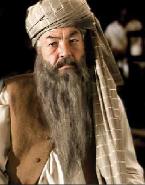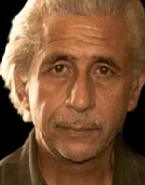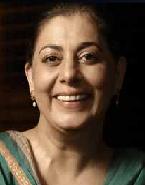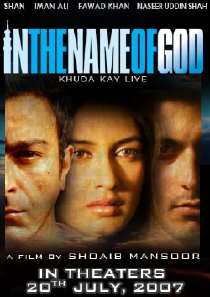(UPDATE: You can view this movie here).
Shaib Mansoor’s feature film Khuda Kay Liye: In The Name of God is to be released in Pakistan on July 20, 2007. There is great buzz about it; as there should be.
Regular readers know how much respect, even reverance, I have for Shoaib’s work. For me he is one of the single most talented Pakistanis I have ever had the pleasure of knowing.
Indeed, one of the single most talented Pakistanis ever.
As we have written before, he may also be the single most under-rated Pakistani artist, since his contribution to TV music, to TV drama, to TV comedy, TV stage shows and to popular music remains unknown to many; too many.
I have not seen the movie myself yet and have been hearing about it from a number of people – including some directly involved – for quite some while. The promo clips are now available on YouTube and – no surprise – the quality of cinematography, of artistic composition, of music, of attention to detail all look great. Typical Shoaib Mansoor. Of course, how the whole package comes across remains to be seen. This is, of course, his first feature film but he is already a master of each of the genres in a movie and his long plays (like Alpha, Bravo, Charlie) must have trained him well for this.
![]()
To me, of course, the story is Shoaib Mansoor. For others, however, there are other draws. The cast includes Lollywood superstar Shaan, Bollywood maestro Naseeruddin Shah, Iman Ali (who is PTV’s Abid Ali’s daughter and was in Shoaib’s Anarkali music video), and other notables. But the real story here is the story. Or, rather, the topic of the story.






The film has a wonderful and wonderfully rich website, and according to the synopsis posted there:
The film is about the difficult situation in which the Pakistanis in particular and the Muslims in general are caught up since 9/11. There is a war going on between the Fundamentalists and the Liberal Muslims. This situation is creating a drift not only between the Western world and the Muslims, but also within the Muslims. The educated and modern Muslims are in a difficult situation because of their approach towards life and their western attire. They are criticized and harassed by the fundamentalists and on the other hand the Western world sees them as potential suspects of terrorism just because of their Muslim names. This paradox is resulting in great suffering for a forward looking Muslim.
This paradox of the divided society is, of course, a constant theme of ATP too. It is always a controversial subject here and will be much much more controversial for Khuda Kay Liye. It is, despite the controversy, a topic that we as a society have to confront. Thoughtfully and seriously. Since I have not seen the movie I cannot say how he has treated the subject, but based on his track record if there is anyone who has the ability to deal with this difficult issue sensitively and without turning things into slogans, it is Shoaib Mansoor. All the more reason to watch the movie and refrain from judging it in advance.
![]()
But there is another important angle to this too. GEO is promoting the movie as a ‘revival’ of Pakistan cinema. As a long time fan of Pakistani cinema, I certainly hope it is. Again, if anyone can do this, Shoaib Mansoor can.
I saw a post today in Metroblog Lahore that made me think that he just might. It was not about this movie, but about a new very modern movie house opening in Lahore. I have long believed that the reason Pakistani cinema declined is not just because of the movies, but also because of the state of movie houses. Well, this new theatre – the DHA Cinema – is quite something.


With tickets at Rs. 250 and Rs. 500 it may be pricy, but from the pictures at the site, it is clearly something that could attract a lot of people simply for the theatre experience. Interestingly, this theater also opens on July 20, and one of the movies it is opening with is Khuda Kay Liye. Coincidence? Probably not.
I must confess that I have been planning to write this post for nearly two weeks now. I had originally thought of calling it something like ‘The Other Lal Masjid Story’ simply because Abdul Rashid Ghazi had taken an interest in this movie. According to Daily Times (July 3, 2007):
Lal Masjid has demanded a ban on a yet-to-be released movie, Khuda Kay Liye, declaring it blasphemous… “The film is against Islamic norms and traditions and is being released on a private TV channel without prior approval from a censor board. We won’t allow this,â€? said Abdul Rashid Ghazi, the Lal Masjid deputy mullah, who did not mention his source of information about the movie. He said he would not object to the movie if ulema approved it. He demanded that the government form a board to review the film. “The government will be held responsible if the film is released without being censored,â€? he said.
I had not understood then, nor understand now, whether his source of objection was the subject matter, the fact that it has an Indian actor in it, or a statement of support for the Censor Board. I guess we will never really know. I do know, however, that it is bound to be controversial for same for at least two of those reasons. As for myself, I will reserve my judgement until after I see the movie. But anything from Shoaib Mansoor, and anything on this subject, I do want to see.





















































the last comment is for Baber.
I think and have seen people’s ideas change gradually over time by consuming movies. Noam Chomsky has extensively themed it in his activism, especially under the titles of ‘Manufacturing Content’ and ‘Propaganda Model’.
Not only me but a lot of empirical scientists believe that violence and drug culture comes from movies in which lead characters are encouraging it.
When you can say that muslims believe what they hear in friday sermons (without questioning) then you should also believe that muslims also inherently consume ideas from movies. Its cognitive science, in my field we call it tacit knowledge.
Ur assuming (once again) that I am worried about his movie profits. Whatever his goals for the movie r, atleast i can reason and argue with anyone WITH THE CURRENT AVAILABLE DATA ON THE MOVIE that it is NOT to solve a social/religious problem we have. Anything else, I am chill. Infact, I am looking forward to it as a movie which even though starts on shaky grounds might bring about a sense of debate which most Pakistanis dont even have an idea about.
Yet another assumption u made, i believe none of us in the ‘other’ camp here at ATP cannot feel insecure by fallacies. I’ll watch the movie though, hoping that there is atleast one good argument from my opposite camp which can really ‘sochnay per majboor karday’ and about insecurities, people feel insecure when they are challenged by sound reasoning. From the two fallacies ive identified in this thread, I feel far more secure than insecure. There is another one coming up, im just waiting for someone else to point out that part of the movie plot.
I agree with you that Akhand’s movies were based on real events, while Mansoor’s movies is a fiction but this fiction comes with a moral, its not an ‘entertainment movie’, it has a message to portray, thats how it was envisioned. When there is a message to portray, I would like to see what it is, at first I was optimistic that he would do something worth while but not right now coz of the fallacies people have identified here, i can even go get the Latin names for these fallacies (They are that much documented and studied!) if u’d like, but I hope ull spare me a much more entertaining weekend. ur call. and watch out for Transformers, now thats a great entertaining fiction!
spelling correction: desperately to replace disparately in above comment of mine.
@Karim
“The word ONLY is the problem… Exclusivity… If you say you are the only RIGHT then you are implying the others are WRONG…. World has got 6 billion people not all of them are Muslims.. So does that mean the only way of salvation is being Muslim.. That would be entirely illogical and against the basic notions of justice. Prophet (PBUH) himself emphasized that Taqwa (Purity of Heart) is what matters not the pedigree, caste, creed or religion…”
If one is really a believer in a religion then that person CANNOT accept that any other religion
, a parallel world is also entirely true. However, respecting other religions is something different and a healthy sign, subscribing to more than one religions is a lack of a clear belief, its an early stage when a person is confused whether his major religion is actually true or not and so finds solace in others as well.
Consider the monotheistic religions vs. the polytheistic ones.
Can they both be true simultaneously? Obviously not. But respecting is something totally different from believing.
As for the notion of justice which your text inherently assumes that it lies in the eyes of the beholder, if I think or judge someone to be doing something outside the borders of my chosen religion, then it doesnot mean that i am doing any injustice. Its Allah to decide who is right who is wrong, not humans. So even if i subscribe to one faith, believe and infact cherish commonalities with others, but I dont believe in two conflicting ideas simultaneously (or religions), I aint doing any injustice to nobody, coz I aint persecuting anyone for differing in opinion or practicing other religions.
But if someone brings ‘corruption’ in religion, I can atleast point my reservations. By corruption in Islam, I mean new ideas which GO AGAINST the teachings of Quran and Sunnah. On the other hand, Ijtehad is adaptability in modern times which are in harmony with the Quran and Sunnah. Ijtehad disparately welcomed.
3.
“Taqwa (Purity of Heart) is what matters not the pedigree, caste, creed or religion…”
Can you site where u got this from, the word ‘religion’ makes little sense here.
@Karim:
“But an important point which comes up is that what do we mean by ISLAM. Does ISLAM mean abrogation of all previous Shariah or ISLAM the final link of the continuation and chain of prophets… ”
Some rules have been further enhanced, some have been reduced, some totally abolished and some remained unaltered.
Best is to consult the Quran at 5:3, translation from Yusuf Ali:
“Forbidden to you (for food) are: dead meat, blood, the flesh of swine, and that on which hath been invoked the name of other than Allah. that which hath been killed by strangling, or by a violent blow, or by a headlong fall, or by being gored to death; that which hath been (partly) eaten by a wild animal; unless ye are able to slaughter it (in due form); that which is sacrificed on stone (altars); (forbidden) also is the division (of meat) by raffling with arrows: that is impiety. This day have those who reject faith given up all hope of your religion: yet fear them not but fear Me. This day have I perfected your religion for you, completed My favour upon you, and have chosen for you Islam as your religion. But if any is forced by hunger, with no inclination to transgression, Allah is indeed Oft-forgiving, Most Merciful.”
2.
“All Muslims believe Prophet (PBUH) as the last prophet but does that mean we have got a license to demean Christian or Jewish teachings of Jesus or Mose”
What are you talking about? I never EVER said or even thought such a thing. I dont mind a person drinking alcohol saying that its allowed in the Christian faith, what really saddens me is that people (at quite an extreme) say that drinking is allowed in ISLAM! thats the point I was trying to make. We should not adjust the religion to fit our likings (Talibans and ‘so-called’ enlightened moderates) but we should study what it is and if we really buy it, then adopt it ‘fundamentally’ which also indicates consistency.